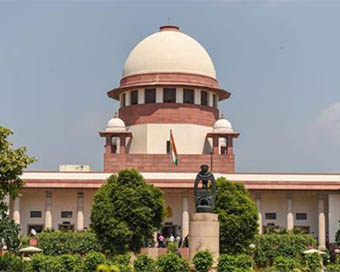Gallery
 PM Modi visit USA
PM Modi visit USA Only the mirror in my washroom and phone gallery see the crazy me : Sara Khan
Only the mirror in my washroom and phone gallery see the crazy me : Sara Khan Karnataka rain fury: Photos of flooded streets, uprooted trees
Karnataka rain fury: Photos of flooded streets, uprooted trees Cannes 2022: Deepika Padukone stuns at the French Riviera in Sabyasachi outfit
Cannes 2022: Deepika Padukone stuns at the French Riviera in Sabyasachi outfit Ranbir Kapoor And Alia Bhatt's Wedding Pics - Sealed With A Kiss
Ranbir Kapoor And Alia Bhatt's Wedding Pics - Sealed With A Kiss Oscars 2022: Every Academy Award Winner
Oscars 2022: Every Academy Award Winner Shane Warne (1969-2022): Australian cricket legend's life in pictures
Shane Warne (1969-2022): Australian cricket legend's life in pictures Photos: What Russia's invasion of Ukraine looks like on the ground
Photos: What Russia's invasion of Ukraine looks like on the ground Lata Mangeshkar (1929-2022): A pictorial tribute to the 'Nightingale of India'
Lata Mangeshkar (1929-2022): A pictorial tribute to the 'Nightingale of India' PM Modi unveils 216-feet tall Statue of Equality in Hyderabad (PHOTOS)
PM Modi unveils 216-feet tall Statue of Equality in Hyderabad (PHOTOS)Hockey India has announced a 54-member core probable squad for the upcoming senior men’s
- Satwik-Chirag return as BAI names 14-strong squad for BWF Sudirman Cup Finals 2025
- Men’s Sr Hockey Nationals to be played in division-based format from April 4
- Mensik denies Djokovic 100th title in Miami final
- KIPG: Son of a vegetable vendor, Bihar’s Jhandu Kumar eyes Worlds, 2028 Paralympics
- Hardik Singh credits hard work and team unity for receiving HI Midfielder of the Year award
SC to decide if states can free life-term convicts before 14 years Last Updated : 17 Jul 2020 07:32:29 PM IST 
SC Can a state government frame a policy, irrespective of the gravity of the crime committed, for the release of a life-term convict prematurely before completing 14 years in jail? The Supreme Court on Friday asked the Chief Justice to constitute a Constitution Bench to consider this issue.
Article 161 empowers the Governor to commute, remit and pardon the sentence of a convict, while Section 433A of the CrPC says there is no scope for any pardon or remission for a person, convicted of a crime which involves the death sentence as the maximum punishment. Therefore, a larger bench will examine the issue whether before completing 14 years in jail, can a policy by a state government allow the release of a convict, and also could this remission be granted in a blanket fashion.A three-judge bench comprising Justices U U Lalit, Mohan M Shantanagoudar and Vineet Saran, framing the question, said "Whether in exercise of power conferred under Article 161 of the Constitution a policy can be framed, where under certain norms or postulates are laid down, on the satisfaction of which the benefit of remission can thereafter be granted by the Executive without placing the facts or material with respect to any of the cases before the Governor and whether such exercise can override the requirements under Section 433-A of the Code."The top court also appreciated the assistance rendered by advocate Shikhil Suri in the matter of the premature release of a life term convict from Haryana. The issue cropped up in a pending bail application filed by a murder accused Pyare Lal, who was more than 75 years old. Suri informed the top court that he had already been granted remission after serving 8 years in jail, as a result of Haryana state rules. "The modalities adopted in the present matter, however, unmistakably, show that the individual facts and circumstances of the case were not even placed before the Governor", noted the top court.The court asked that while granting remission were these basic aspects taken into consideration -- the manner in which the crime was committed and the impact of the crime on the society. Also, "the seriousness of the crime got completely suppressed and relegated in the background under the norms laid down in the policy and it was then left to the Executive to see whether any individual case came within the parameters laid down by the policy", noted the bench.The bench observed that the consistent line of cases decided by the apex court has laid down that the principles of Section 433-A of the Code do not and cannot apply to the exercise of constitutional power either under Article 72 or under Article 161 of the Constitution.IANS New Delhi For Latest Updates Please-
Join us on
Follow us on








172.31.16.186







